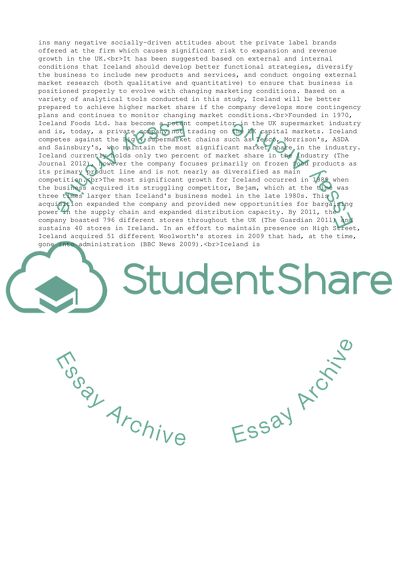Cite this document
(Retailer: ICELAND Essay Example | Topics and Well Written Essays - 3500 words, n.d.)
Retailer: ICELAND Essay Example | Topics and Well Written Essays - 3500 words. https://studentshare.org/management/1807141-retailer-iceland
Retailer: ICELAND Essay Example | Topics and Well Written Essays - 3500 words. https://studentshare.org/management/1807141-retailer-iceland
(Retailer: ICELAND Essay Example | Topics and Well Written Essays - 3500 Words)
Retailer: ICELAND Essay Example | Topics and Well Written Essays - 3500 Words. https://studentshare.org/management/1807141-retailer-iceland.
Retailer: ICELAND Essay Example | Topics and Well Written Essays - 3500 Words. https://studentshare.org/management/1807141-retailer-iceland.
“Retailer: ICELAND Essay Example | Topics and Well Written Essays - 3500 Words”. https://studentshare.org/management/1807141-retailer-iceland.


